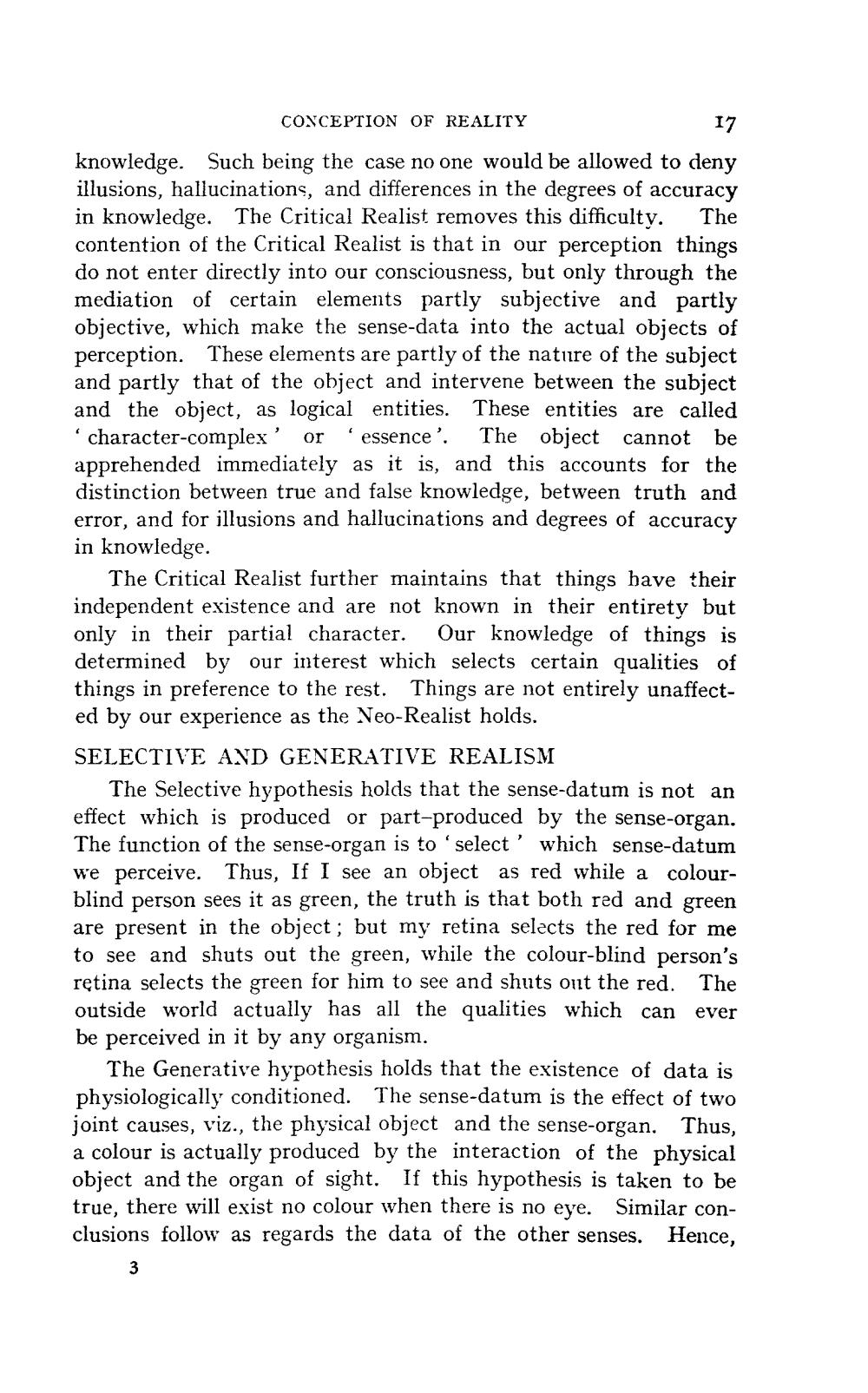________________
CONCEPTION OF REALITY
17
knowledge. Such being the case no one would be allowed to deny illusions, hallucinations, and differences in the degrees of accuracy in knowledge. The Critical Realist removes this difficulty. The contention of the Critical Realist is that in our perception things do not enter directly into our consciousness, but only through the mediation of certain elements partly subjective and partly objective, which make the sense-data into the actual objects of perception. These elements are partly of the nature of the subject and partly that of the object and intervene between the subject and the object, as logical entities. These entities are called
character-complex' or 'essence'. The object cannot be apprehended immediately as it is, and this accounts for the stinction between true and false knowledge, between truth and
r, and for illusions and hallucinations and degrees of accuracy in knowledge.
The Critical Realist further maintains that things have their independent existence and are not known in their entirety but only in their partial character. Our knowledge of things is determined by our interest which selects certain qualities of things in preference to the rest. Things are not entirely unaffected by our experience as the Neo-Realist holds. SELECTIVE AND GENERATIVE REALISM
The Selective hypothesis holds that the sense-datum is not an effect which is produced or part-produced by the sense-organ. The function of the sense-organ is to 'select' which sense-datum we perceive. Thus, If I see an object as red while a colourblind person sees it as green, the truth is that both red and green are present in the object; but my retina selects the red for me to see and shuts out the green, while the colour-blind person's retina selects the green for him to see and shuts out the red. The outside world actually has all the qualities which can ever be perceived in it by any organism.
The Generative hypothesis holds that the existence of data is physiologically conditioned. The sense-datum is the effect of two joint causes, viz., the physical object and the sense-organ. Thus, a colour is actually produced by the interaction of the physical object and the organ of sight. If this hypothesis is taken to be true, there will exist no colour when there is no eye. Similar conclusions follow as regards the data of the other senses. Hence,




